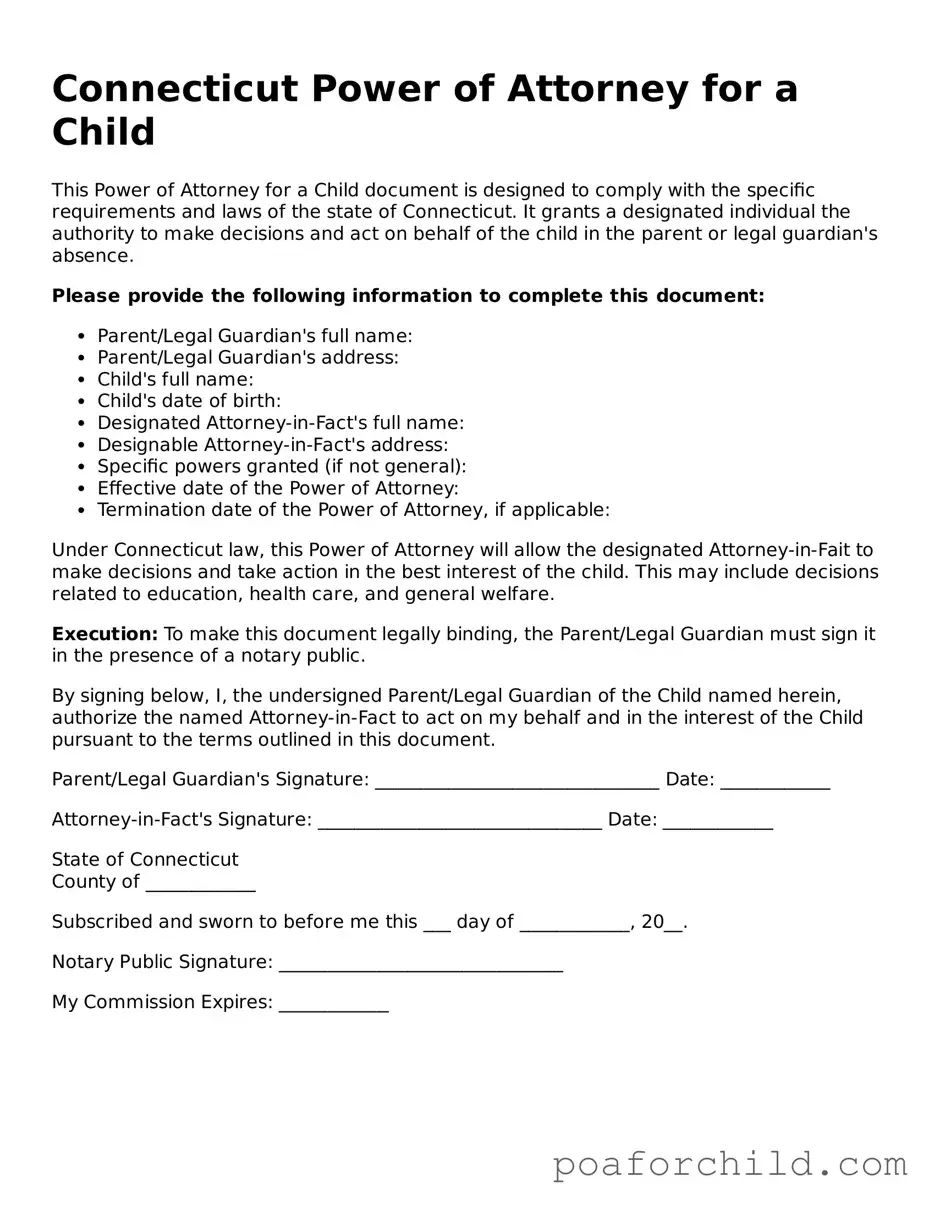Detailed Guide for Using Connecticut Power of Attorney for a Child
The Connecticut Power of Attorney for a Child allows parents or legal guardians to grant another person the authority to make decisions regarding the child's welfare, including education, healthcare, and general upbringing. This form can be a vital tool for ensuring the child's needs are met when the parents or guardians cannot be present due to various reasons such as illness, military service, or other commitments. The following steps offer guidance on how to complete this document accurately to ensure it meets legal requirements and reflects the parent's or guardian's wishes.
- Begin by gathering all necessary information, including the full legal names of the parent(s) or legal guardian(s), the child, and the person who will be granted authority (the attorney-in-fact).
- Identify the type of power being granted. Specify if the power of attorney will cover general welfare, healthcare, educational decisions, or a combination of these areas.
- Specify the duration of the power of attorney. Decide whether this document will remain in effect indefinitely, or if it will expire on a certain date or upon the occurrence of a specific event.
- Include any special instructions or limitations on the attorney-in-fact's power. Clearly outline what they can or cannot do in their role as it pertains to the child's care and well-being.
- Fill out the contact information for each parent or legal guardian, the child, and the attorney-in-fact. This includes addresses, phone numbers, and any other relevant contact information.
- Obtain the signature of the attorney-in-fact, acknowledging their acceptance of the responsibilities being granted to them under this power of attorney.
- Store the completed form in a safe place and provide copies to relevant parties, such as the child's school, healthcare providers, and the attorney-in-fact. Ensure that anyone who might need to be aware of this arrangement has access to the document.
- Sign and date the power of attorney form in the presence of a notary public. This step is essential for the form to be legally binding and valid.
By following these steps, parents or guardians can have peace of mind knowing that they have taken the necessary precautions to ensure their child's welfare is looked after, even in their absence. It's recommended to review and update the power of attorney document as needed to reflect any changes in circumstances or wishes.
